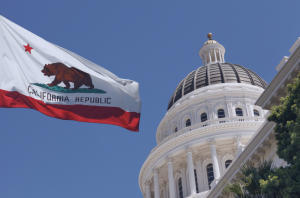Unpaid wages are more than just a personal financial issue—they ripple outward, impacting families, communities, and the economy. Workers rely on their earnings to meet basic needs, and when employers fail to pay, the consequences extend far beyond the individual. In this blog, we’ll explore the broader implications of unpaid wages, delve into why addressing wage theft is vital, and offer insights into protecting workers’ rights.
Understanding Unpaid Wages
Unpaid wages refer to situations where employers fail to compensate workers as agreed. This can include:
- Withholding earned wages beyond the agreed pay period.
- Unpaid overtime despite working additional hours.
- Misclassification of workers as independent contractors to avoid benefits and overtime.
In 2022 alone, wage theft cost American workers billions, disproportionately affecting low-wage earners who rely heavily on every dollar earned. The issue not only undermines individual financial stability but also challenges the integrity of labor systems designed to ensure fairness in the workplace.
The Impact on Workers and Their Families
For individual workers, unpaid wages mean financial instability. Families suffer when bills go unpaid, groceries are skipped, or children’s education is interrupted due to lack of funds. Here’s a closer look:
1. Mental Health Strain
Financial stress from wage theft can lead to anxiety, depression, and strained relationships. Constant uncertainty about money takes a toll on emotional well-being, and the effects can last for years, even after the wages are recovered.
2. Reduced Access to Basic Needs
When paychecks are incomplete, families may face eviction, utility shut-offs, or the inability to afford medical care. These sacrifices perpetuate cycles of poverty, leaving families vulnerable and struggling to make ends meet.
3. Lost Opportunities
Unpaid wages can prevent workers from saving for future goals like home ownership or higher education, keeping families stuck in survival mode. It also robs communities of the upward mobility that comes from a financially secure and educated workforce.
The Ripple Effect on Communities
Beyond individual families, wage theft creates a domino effect on local economies and social structures:
1. Economic Decline
When workers don’t get paid, they can’t spend. This reduced spending affects local businesses, causing economic stagnation in communities. Small businesses, in particular, feel the brunt of reduced consumer activity, which can lead to closures and job losses.
2. Increased Public Burden
Families struggling due to unpaid wages often turn to public assistance programs like food stamps or housing aid. This increases taxpayer burdens and diverts funds from other critical needs such as education, healthcare, and infrastructure improvements.
3. Social Inequality
Wage theft disproportionately affects marginalized groups, exacerbating existing inequalities. Immigrants, women, and people of color are more likely to face this injustice, widening social and economic divides. As these communities lose economic ground, the disparities in wealth and opportunity grow even larger.
Why Tackling Wage Theft Is Critical
Addressing unpaid wages isn’t just a moral obligation—it’s essential for economic and social health. Here’s why:
1. Protecting Workers’ Rights
Every worker deserves fair compensation for their labor. Enforcing wage laws upholds basic rights and ensures a level playing field for all. When employers violate these rights, it sends a dangerous signal that exploitation is acceptable, which undermines trust in labor systems.
2. Strengthening Communities
When workers are paid fairly, they contribute more to their communities—spending locally, volunteering, and participating in civic life. The economic stability of individuals has a cascading positive effect, fostering safer and more cohesive neighborhoods.
3. Economic Growth
Paid wages mean increased consumer spending, which drives business growth and strengthens the overall economy. A healthy labor market leads to innovation, job creation, and a robust economy that benefits everyone.
4. Deterring Bad Actors
Strong legal consequences for wage theft send a clear message to employers: unfair practices will not be tolerated. Consistent enforcement of labor laws not only protects workers but also encourages ethical business practices across industries.
How Workers Can Fight Back
If you or someone you know has experienced unpaid wages, there are steps you can take:
- Document Everything
Keep records of hours worked, pay stubs, and communication with your employer. This evidence is crucial for building your case. Employers are less likely to dispute claims backed by clear documentation. - Know Your Rights
Familiarize yourself with local and federal labor laws. The Fair Labor Standards Act (FLSA) offers protections for many U.S. workers, including provisions for minimum wage, overtime, and child labor regulations. - Seek Legal Help
A labor attorney can guide you through the process of recovering unpaid wages. They can also help hold employers accountable for their actions, ensuring that justice is served and similar violations are prevented in the future.
David Gallo: Your Partner in Justice
If you’ve been affected by unpaid wages, David Gallo is here to help. As a dedicated advocate for workers’ rights, David has the expertise and determination to fight for the compensation you deserve. Whether you’re an hourly employee, salaried worker, or independent contractor, no case is too complex.
With years of experience in labor law, David Gallo understands the intricacies of wage theft cases and is committed to holding employers accountable. Wage theft doesn’t just hurt workers—it damages the entire community. David Gallo is passionate about restoring balance and fairness to ensure everyone gets a fair shot at financial stability.
Take the first step toward justice today. Contact David Gallo to schedule a consultation and reclaim what’s rightfully yours.
Conclusion
Unpaid wages have far-reaching consequences that extend beyond individual workers to affect families and entire communities. By addressing wage theft, we can create a fairer, stronger, and more equitable society. This issue impacts us all, and standing up against it ensures a better future for everyone. Let’s work together to ensure that every worker receives the compensation they’ve earned.
If you or someone you know has been affected by wage theft, don’t wait—reach out to David Gallo today and start the journey toward financial justice.







